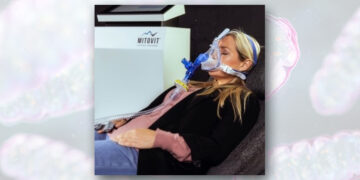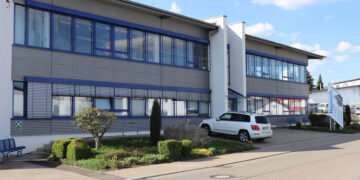Automotive case study: Eberspaecher Controls- new developments and sustainable solutions

Sailing is back in fashion – now even on the road!
The proportion of electronics used in vehicles has continued to increase – by roughly 50 % by 2016. Parallel to this trend is the growing requirement for the electronic components of the end devices to be safe, reliable and also energy-efficient in operation. More and more manufacturers are attempting to integrate innovative technical ideas and environmentally friendly developments into their vehicles. One company to benefit from this is Eberspächer Controls. This vehicle supplier equips some 8000 vehicles from European and US manufacturers with sophisticated electronics systems daily. Major drivers of growth are on-board power stabilising products such as are found on cars with automatic start-stop systems. At the centre of this technology is a DC-DC converter produced by Eberspächer at its new location in Landau, using reflow soldering systems supplied by Rehm Thermal Systems.
Automotive electronics is a business area of the internationally active Eberspächer Group. This renowned partner for innovation in the automotive industry is also a leading system developer and supplier for exhaust systems, vehicle heating and air conditioning systems for buses. In 2014 the Esslingen-based company achieved sales of over €3.5 billion.
Eberspächer has remained family-owned since it was established in 1865; today, fifth-generation family members are included among its directors. The company operates internationally, with over 65 locations in more than 25 countries. Eberspächer Controls, founded in 2001, develops and manufactures complex electronics systems for the automotive industry. Products include control units for PTC heaters, high-voltage applications and energy storage systems.
With the opening last year of the new facility in Landau, Eberspächer Controls increased its capacity by 50 %. As well as administrative and development departments (involving sophisticated testing and simulation equipment), Eberspächer also has its own production facility here. The 3500 m2 of production area contains manufacturing systems for various electronic components, including SMT and THT technologies, soldering under inert gas, blank separation and 2K encapsulation plus bolting and fitting of special mechatronics components. ‘Modern, safe electronics that provide comfort under all circumstances are in greater demand in the automotive industry than ever. As a result, we as a supplier must create a production space that is absolutely reliable, but also flexible’, says Stefan Kiewer, Director for Materials Management at Eberspächer Controls.
Partners share success above all
Eberspächer does not leave this high quality standard for its production to chance, but rather works closely with reliable cooperation partners in the industry. For years Eberspächer has obtained innovative and energy-efficient reflow convection soldering systems from Rehm Thermal Systems. This machine manufacturer based in Blaubeuren-Seissen in Swabia is a global player on the world markets for the design, manufacture and distribution of high-quality thermal system solutions. Its product portfolio includes reflow soldering systems offering convection, condensation and vacuum processes, coating and drying systems, function testing systems, systems for metallizing solar cells and individual custom applications.
The largest user of reflow soldering systems is the automotive industry, followed by medical systems, aerospace, power electronics and defence systems. As a leading innovator Rehm sets high standards for electronics production and its many features for system design allow for efficient and profitable manufacturing.
Reliable production of DC-DC converters
At present the production lines at Eberspächer in Landau are being used primarily for the manufacture of DC-DC converters for modern start-stop systems in cars from leading manufacturers. ‘Our DC-DC converters prevent voltage drops occurring when the automatic start-stop system restarts the engine after waiting at a red light, thus preventing the radio, navigation system, lighting and air conditioning from constantly cutting out. Start-stop systems reduce fuel consumption substantially when a vehicle is stationery in traffic and are thus an important element of resource conservation and environment management’, says Martin Staat, Manager of Industrial Engineering at Eberspächer Controls.
In the new manufacturing facility, Eberspächer has four permanently installed production lines on which the DC-DC converters are produced in 15 work steps. Each line is a total of 33 metres in length and consists of placement machine, printer, handling systems and reflow convection soldering systems from Rehm Thermal Systems. Eberspächer manufactures over a million DC-DC converters per year in mass production. To achieve this high throughput the machines are run on a 24-hour basis with shift operation. Eberspächer’s manufacturing is particularly profitable both because of this form of organisation and also due to the use of sustainable, energy-efficient machinery.
All SMT components and THT elements require high-quality soldered joints on the board of the DC-DC converter to ensure that the electronic contacts are fault-free and the end device operates reliably in the vehicle.
Eberspächer has already invested in its fifth reflow soldering system from Rehm Thermal Systems – a new VisionXP+ that allows both high quality and highly energy-efficient production. ‘The VisionX series for reflow convection soldering gives us the ideal conditions for flexible, sustainable production with the best quality of soldering’, stresses Martin Staat.
Resource management in focus
Sustainability is of the essence. This was accepted in the electronics industry long ago and is challenging manufacturers to find new solutions for environmentally compatible manufacturing. By investing in efficient systems, companies have been able to reduce their energy consumption considerably.
‘A dependable, stable production process is important to us. We have to process large quantities of electronic components with a high depth of production, with absolute certainty. Rehm’s resource-conserving concept, combined with the high flexibility of its trusted systems, has convinced us and has guided us towards making a further investment’, says Stefan Kiewer.
Sustainable success
With the VisionXP+ Rehm has brought a system to market that combines all the factors of sustainable production. Apart from efficient heat transfer and optimal insulation, this also includes many software tools that enable individual, transparent process documentation. Effective residue management ensures minimal downtimes and keeps maintenance outlay low. The system is also easy to operate. An optional vacuum module now also makes void-free soldering easy to achieve in the convection soldering process.
In particular for customers whose manufacturing involves a high throughput and multi-shift operation, the system availability is a significant bonus. Unplanned downtimes can result in high costs. To prevent these, Rehm has implemented an intelligent circulating air controller that also monitors filters, for example, and makes any necessary maintenance works easier to schedule.
Using raw materials suppliers from the region, Rehm manufactures systems that more than hold their own in the global market. Low consumption of materials and dependable recycling during manufacture, short transport distances and robust, long-life and upgradeable plant are what set our quality apart – a quality that is valued by many renowned customers.
The VisionXP+ reflow convection soldering system uses 20 % less energy and thus reduces CO2 emissions by 10 tonnes per year. ‘For customers who wish to manufacture their products in an environmentally aware manner and also lower their operational costs in the long term, this is a decisive and economically significant criterion. The system can also be integrated into any manufacturing environment’, says Gerhard Unseld of Rehm Sales Germany South West.
The example of Eberspächer and Rehm demonstrates that the trend is clearly towards environmentally friendly electronics production. Both companies combine innovative technologies with reliable environment concepts and can already offer clever solutions for the manufacture of energy-saving and safe automotive electronics.
Climbing aboard and sailing away
It is intended that even more fuel be saved in future, and ‘then cars will not just drive but will also sail’, says Martin Staat. The latest automotive technologies are making it possible for combustion engines to switch to idle running as soon as the driver takes his foot off the accelerator and the vehicle to maintain its speed (e.g. when going downhill) by simply rolling – so that the car simply ‘sails’ along the road. Existing start-stop systems will then be extended to include a ‘sailing mode’. Apart from an unfamiliar sensation while driving, one thing above all is in focus: sustainable and fuel-saving travel. Some renowned automotive manufacturers are already using this system.




